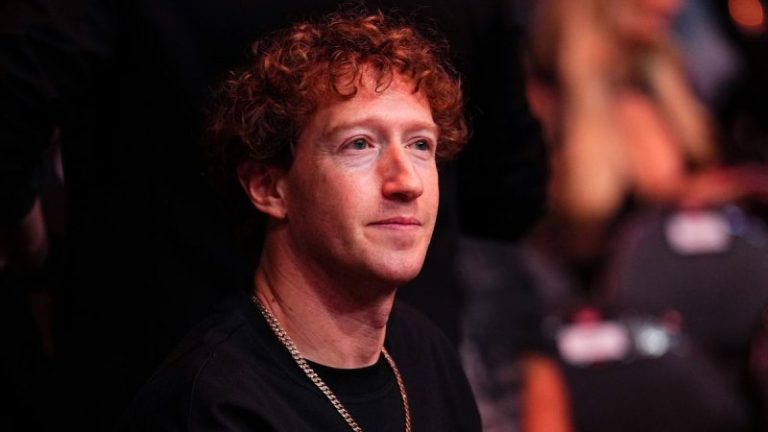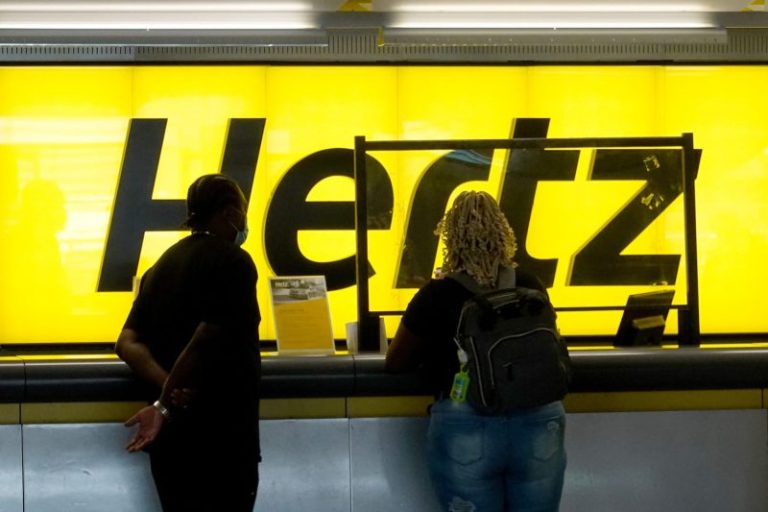It’s too bad there are no cameras allowed in federal courtrooms, because I really would like to see Mark Zuckerberg testify.
He was the leadoff witness in the Federal Trade Commission’s antitrust lawsuit against Meta, and that in itself was news.
The clash is the most sweeping attempt to dismember the world’s biggest social network, and goes to the heart of how competition is defined.
Not since the government broke up AT&T more than four decades ago has a mega-corporation faced the prospect of being torn apart.
The suit was filed in the first Trump term (the president couldn’t stand Facebook at the time), aggressively pursued by Joe Biden, and now has finally come to trial in a Washington courtroom.
Trump once told me Facebook was such a threat to society that he used it as justification for flip-flopping on his effort to ban TikTok.
But since he won a second term, Zuck, like many tech bros, has been cozying up to the new sheriff in town, including a $1-million donation to the president’s inaugural.
There are reports that when the man who runs Facebook recently met with Trump, he asked about the possibility of dropping the lawsuit. Obviously, it didn’t work.
The focus of the trial is Zuckerberg’s decision to buy Instagram and WhatsApp when they were small start-ups.
The FTC’s lead lawyer questioned Zuckerberg about a platform meant to foster ties between family and friends to a concentration on showing users interesting third-party content through its news feed.
‘It’s the case that over time, the ‘interest’ part of that has gotten built out more than the ‘friend’ part,’ Zuckerberg said. He added that ‘the ‘friend’ part has gone down quite a bit, but it’s still something we care about.’
Translation: Screw the friends. Very 2010s. We’ve moved on.
Zuckerberg spoke slowly – at least according to reporters who were there – and he was back on the hot seat yesterday. FTC lawyers pressed him on a stack of emails he had sent:
‘We really need to get our act together quickly on this since Instagram’s growing so fast.
‘Instagram has become a large and viable competitor to us on mobile photos, which will increasingly be the future of photos.’
‘If Instagram continues to kick ass on photos, or if Google buys them, then over the next few years they could easily add pieces of their service that copy what we’re doing now.’ Which was a flop called Facebook Camera.
In yet another message, Zuck called Instagram’s growth ‘really scary,’ saying ‘we might want to consider paying a lot of money for this.’ Facebook bought Instagram for $1 billion in 2012, and two years later spent $19 billion on WhatsApp.
In an email to Tom Alison, head of Facebook, Z offered alternatives:
‘Option 1. Double down on Friending. One potentially crazy idea is to consider wiping everyone’s graphs and having them start again.’
Alison responded: ‘I’m not sure Option #1 in your proposal (Double-down on Friending) would be viable given my understanding of how vital the friend use case is to IG.’
Now we come to the fascinating part.
It’s not breaking news that Mark’s judgment can be flawed. Remember when he insisted that virtual reality would be the next big thing?
But he argues that Meta has all kinds of rivals in the ‘entertainment’ area, such as X, TikTok and YouTube – and he easily could have added Snap, Netflix, Amazon Prime Video and HBO’s Max. It’s all about the battle for eyeballs now. There are only so many hours in the day. Mindshare is everything.
And with group chats all the rage, Meta doesn’t do well on that kind of interaction, with Instagram as a possible exception.
Now of course it’s in Zuckerberg’s self-interest to testify that he competes with anything that has a screen. But it’s not that far off the mark. Keep in mind that Meta has 4 billion active monthly users.
I sure wish we could see the embattled CEO making the case that he’s awash in a vast sea of rivals.



